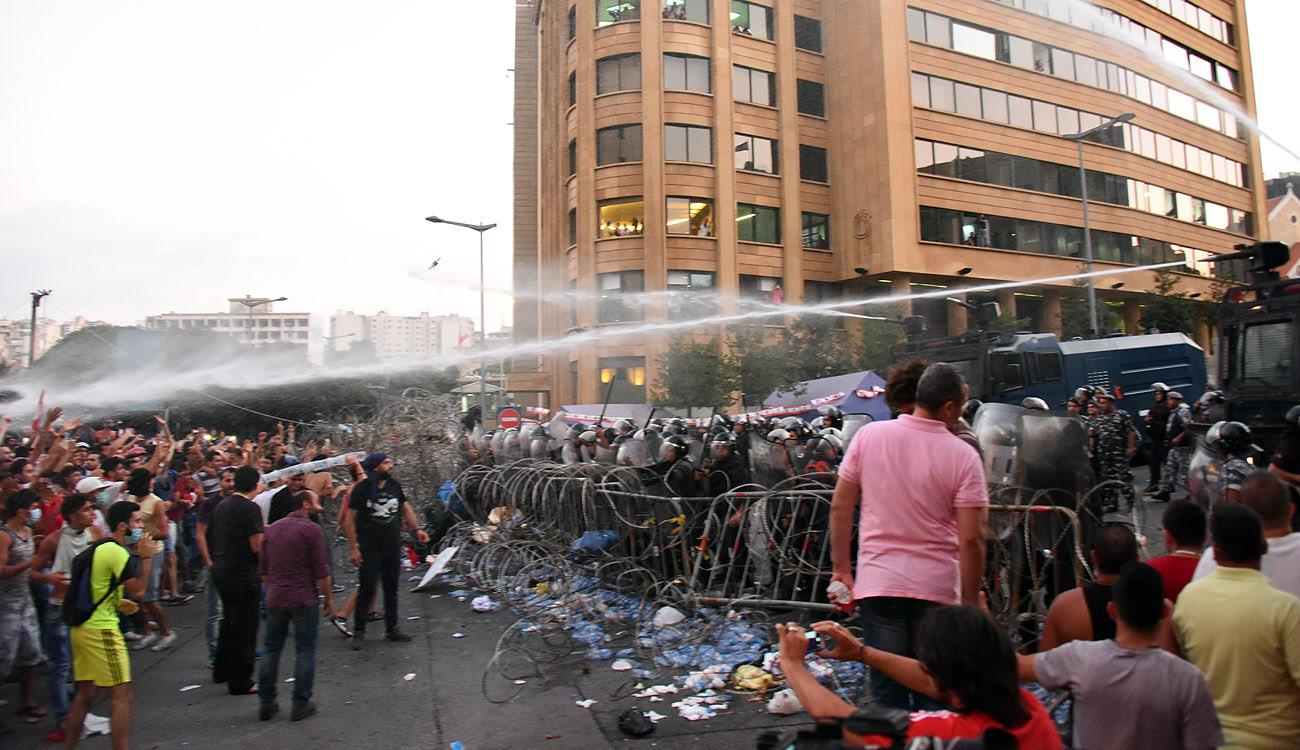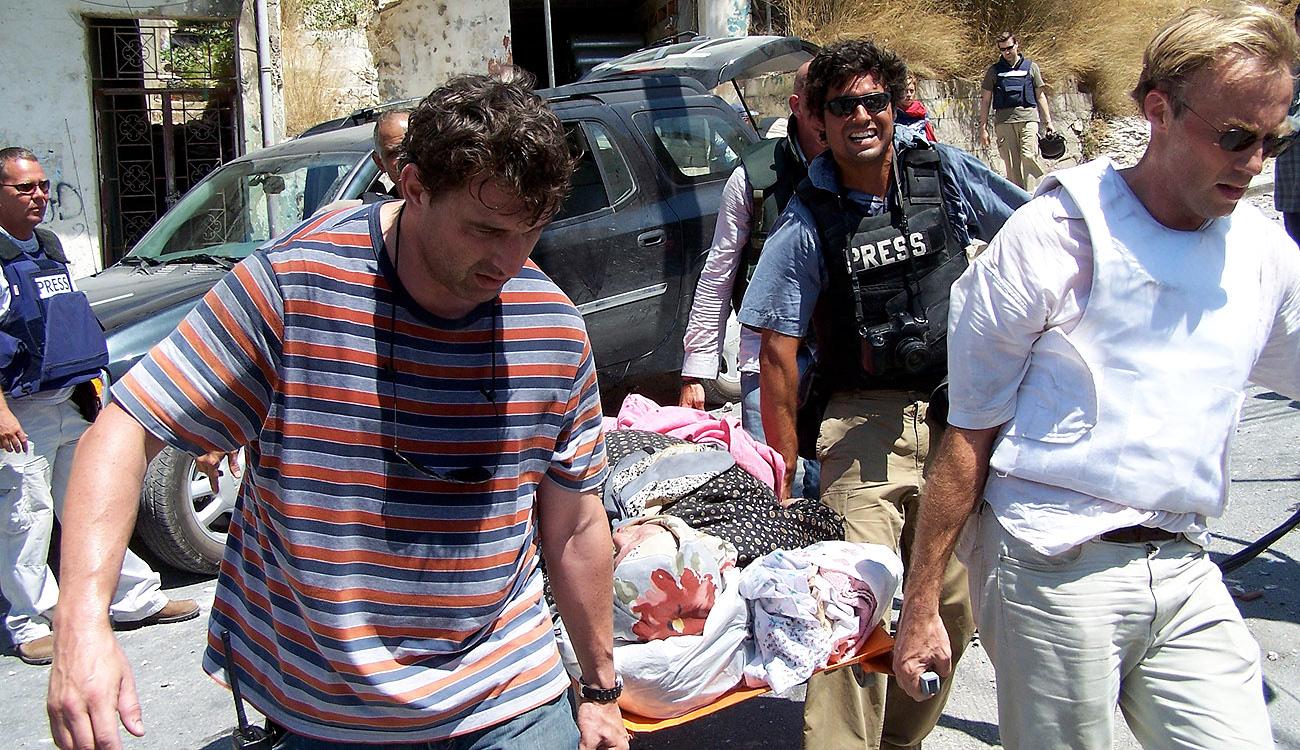Media and War
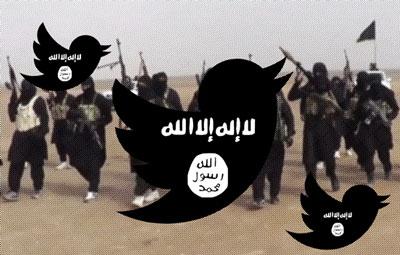
Mediated Terrorism
Media and terrorism have a symbiotic relationship, as the latter relies on the former to achieve its impact. This poses a great dilemma for journalists and news institutions: if they report on terrorism, they essentially serve its goals of spreading fear. If they don’t cover it, they fail to serve their publics. As non-state actors become increasingly sophisticated in using modern digital media technologies and integrating them with their terrorism operations, it is important to examine this relationship in depth and try to help journalists find effective innovative ways to cover terrorism. See reports on media and terrorism below.
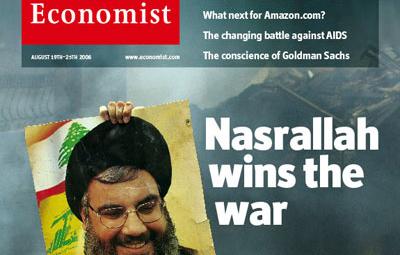
Frames of War
The way news media cover a conflict, especially in distant lands, influences our perception of that conflict. News frames of war define the problem, designate blame, construct legitimacy, provide moral justifications, and ultimately offer solutions. They designate who are the good guys and the bad guys, the winners and the losers, the victims, the aggressors and the saviors, and have the power to help resolve conflicts or escalate antagonism. Millions of people’s lives sometimes are influenced by what is included in the news frames, and more importantly what is excluded. See studies about news framing of war and conflict below.
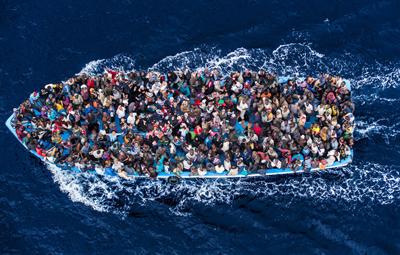
Media Uses During War
How do people living under dire situations of war and conflict use media to serve their information needs, connect with family and friends, follow up on the progress of political, military and diplomatic campaigns, and sometimes advocate their own views of the conflict and support certain solutions and groups? Research in conflict zones is rare and dangerous. IMRT’s team is uniquely situated to conduct such studies in a reliable, valid and safe manner. Read some reports we published that tackled these issues.
Research
Melki, Jad, & Kozman, Claudia. (2020). Media Uses and Trust During Protests: A working paper on the media uses of Lebanese during the 2019 uprising. Media/War Program. Institute of Media Research and Training, Lebanese American University, Beirut, Lebanon.
Melki, J., & Kozman, C. (2019). Media dependency and trust during conflict: How Syrian nationals engage with traditional and digital media. Media, War & Conflict.
Kozman, C. (2018). Review of The Lebanese media: Anatomy of a system in perpetual crisis, by Sarah El-Richani. Middle East Journal of Culture and Communication, 11(1),111-113.
Kozman, C., & Melki, J. (2018). News media uses during war and conflict: The case of the Syrian civil war. Journalism Studies, 19(10), 1466-1488.
Cozma, R., & Kozman, C. (2018). The Syrian crisis in U.S. and Lebanese newspapers: A cross-national analysis. International Communication Gazette, 80(2), 185-204.
Kozman, Claudia, and Melki, Jad. (2017). News Media Uses During War: The case of the Syrian conflict. Journalism Studies. http://www.tandfonline.com/doi/full/10.1080/1461670X.2017.1279564
Melki, Jad (PI.), Anke Fiedler, Bart Veenstra, Dirk Spilker (Eds.) (2016). Syria Audience Research. Free Press Unlimited (FPU). https://www.freepressunlimited.org/en/news/syria-audience-research-2016
Palmer, Lindsay and Melki, Jad. (2016). Shape Shifting in the Conflict Zone: The Strategic Performance of Gender in War and Conflict Reporting. Journalism Studies. http://www.tandfonline.com/doi/full/10.1080/1461670X.2016.1161494
Melki, Jad, and Jabado, May. (2016). Mediated Public Diplomacy of the Islamic State in Iraq and Syria: The synergistic use of terrorism, social media and branding. Media and Communication. http://www.cogitatiopress.com/mediaandcommunication/article/view/432
Cozma, R., & Kozman, C. (2015). The Syrian crisis in the news: How U.S. elite newspapers framed the international reaction to Syria’s use of chemical weapons. Journalism Practice, 9(5), 669-686.
Melki, Jad (PI.), Fiedler, Anke, Reimpell, Philippine, and Maul, Gunnar (Eds.) (2014). Syria Audience Research. Media in Cooperation and Transition (MiCT): Berlin, Germany. https://www.mict-international.org/projects/syria-audience-research-2016/
Melki, Jad. (2014). The interplay of politics, economics and culture in news framing of Middle East Wars. Media, War and Conflict, 7(2), 165-186. http://journals.sagepub.com/doi/abs/10.1177/1750635214537405
Melki, Jad, and Deeb, Amal. (2013). The media framing of war: Global media coverage of the 2006 war. Al-Mustaqbal Al-Arabi, 413 (July), 42-61.
Melki, Jad. Fromm, Megan, and Mihailidis, Paul. (2013). Trauma Journalism Education: teaching merits, curricular challenges, and instructional approaches. Journalism Education, 2(2), 62-77. http://journalism-education.org/2013/12/trauma-journalism-education/
Melki, Jad. (2010). Media Habits of MENA Youth: A three-country survey. Issam Fares Institute Working Paper Series, #4. The Issam Fares Institute for Public Policy and International Affairs. http://www.med-media.eu/library/media-habits-mena-youth-three-country-survey/
Melki, Jad. (2009). Why Journalists Need to Learn About Trauma. Nieman Reports, (winter), Nieman Foundation for Journalism at Harvard. http://niemanreports.org/articles/why-journalists-need-to-learn-about-trauma/
Melki, Jad, & Moeller, Susan, and Mihailidis, Paul. (2007). The Summer 2006 Conflict Between Hezbollah and Israel, One Year Later. Al-Mashriq, 6(22), 13-34.
Melki, Jad, & Moeller, Susan. (2007). Covering War. Analyzing coverage of the summer 2006 Hezbollah-Israel war, International Center for Media & the Public Agenda, University of Maryland. http://www.icmpa.umd.edu/pages/studies/hezbollah_israel_war/z_main.html
Melki, Jad, & McConnell, Herbert. (2004). Troops, Political Advertising Resource Center, Center for Political Communication and Civic Leadership, University of Maryland, Sept. 28.
Melki, Jad, & McConnell, Herbert. (2004). War on Terror Agenda, Political Advertising Resource Center, Center for Political Communication and Civic Leadership, University of Maryland, Oct. 18.
